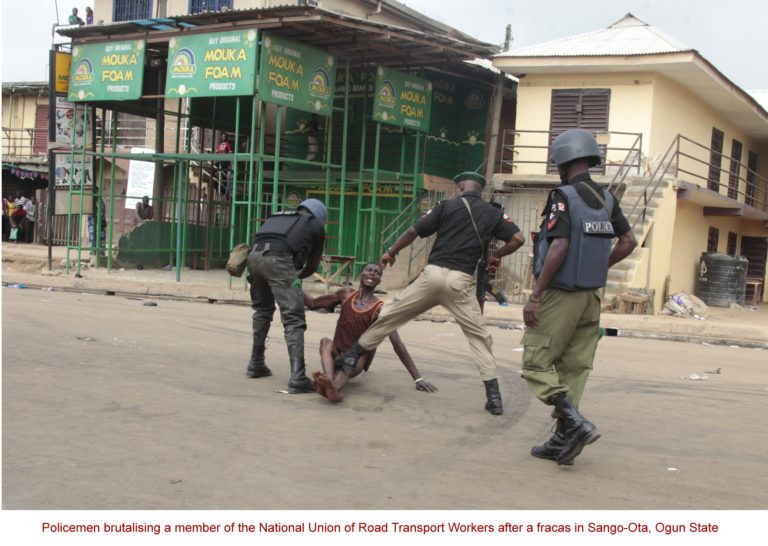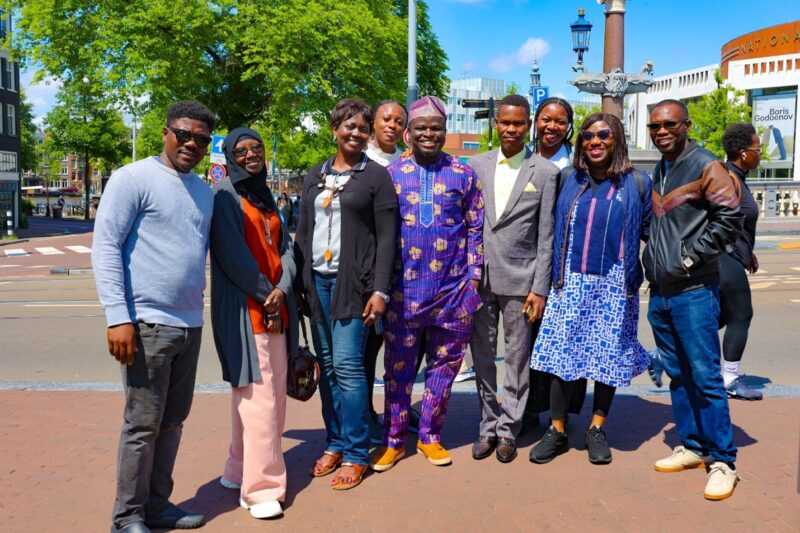Victim profiling is a bane of Nigerian security, where ordinary citizens get brandished and harassed at will. The role of the law enforcement agencies is to ensure that adequate security is provided for, and that laws and orders are strictly adhered to by members of the public. However, it has been a sad turn of events that some of these agencies that are meant to protect the people have been engaged in harassment, tormenting and unlawful arresting of people without following due procedures, and sometimes even killing innocent civilians.
Police brutality and extrajudicial killings
Numerous cases have been reported overtime about police brutality and extrajudicial killings of citizens.The vast network of checkpoints that exists in Nigeria leads to numerous confrontations between the police and motorists who refuse to pay bribes demanded. All too often these confrontations escalate into fatal shootings by the police.The Federal Special Anti-Robbery Squad and the Special Anti-Cultism Squad have also been guilty of such cases of brutality.
Most recently, Kolade Johnson,36 years old graduate of University of Benin, husband and father of one and the only son in his family was shot dead by FSARS on Sunday at Onipetesi, Mangoro bus stop, Lagos State. His alleged killers have been arrested. The news of his death sprung up criticisms and negative comments against the Nigerian Police force, with many Nigerians demanding to end FSARS in the country.
Police officers often hide under the falsehood of accidental discharge.The courts must make it abundantly clear to the policemen that never again will such plea or defense be available to any of them accused of murder. Nigerians will be continuously harassed by those who hide under such plea.It can therefore be deduced that corruption in the Nigerian Police Force leads directly and indirectly to extrajudicial killings of Nigerians.
In 2016, former Inspector-General of Police, Ibrahim Idris, warned the Special Anti-Robbery Squad operatives against torture and extra-judicial killings, saying no policeman in the world had the right or authority to kill crime suspects. He admonished the SARS personnel to always respect the right of every Nigerian, noting that this was the way they could change the negative public perception about them. By 2018, Nigerians planned a 10-city protest, but the police assuredthem of SARS reforms in days. Despite that, the brutality continued.
Daily, there are terrible tales of exploitation of Nigerian youths by SARS operatives.What SARS has become to the general publicis a national scourge that isa witch-hunt machinery against Nigerian youths. This led to the #EndSARS campaign, against the constant abuse of office by SARS operatives which went viral on social media platforms.
Extortion, arbitrary arrests and detention
The most common venue for police extortion in Nigeria occurs at police roadblocks and checkpoints. On a daily basis throughout Nigeria, drivers of taxis, minibuses, and motorcycles, as well as private motorists are subjected to routine extortion under threat of arrest, detention, and physical injury after being obliged to stop at official or semi-official police roadblocks.Persons held in police custody or stopped at police checkpoints or other public locations, and who are unable or unwilling to pay the police, are frequently subjected to threats and acts of physical abuse ranging from beatings to sexual assault, torture, and extrajudicial killings.
From reports held, numerous police officers, legal professionals, and civil society leaders characterized the problem of unlawful detention of citizens by Nigerian police officers with the apparent motivation to extort money as a widespread and growing problem throughout Nigeria.In many cases, police officers round up and detain groups of citizens from public places such as restaurants, bars, on the road, bus stops, and markets which affords them more chances for extortion and corruption.
The Wole Soyinka Centre for Investigative Journalism strongly condemns such acts elucidated above which is an infringement on the human rights of the citizens by thelaw enforcement agencies. The Nigerian Constitution guarantees that every person has the right to life and that no one shall be arbitrarily deprived of that right. International treaties ratified by Nigeria, including the International Covenant on Civil and Political Rights, and the African Charter on Human and Peoples’ Rights also prohibit the arbitrary deprivation of the right to life.
Nigerianlaw enforcement agenciesshould ensure their squads undergo thorough retraining and restructuring. The Nigerian government, and the anti-corruption commissions should also improve transparency and accountability within the security agencies by reforming and ensuring better coordination of oversight mechanisms. Authorities must therefore investigate and prosecute without delay officers of the law who are implicated in extortion, embezzlement, and human rights abuses.








